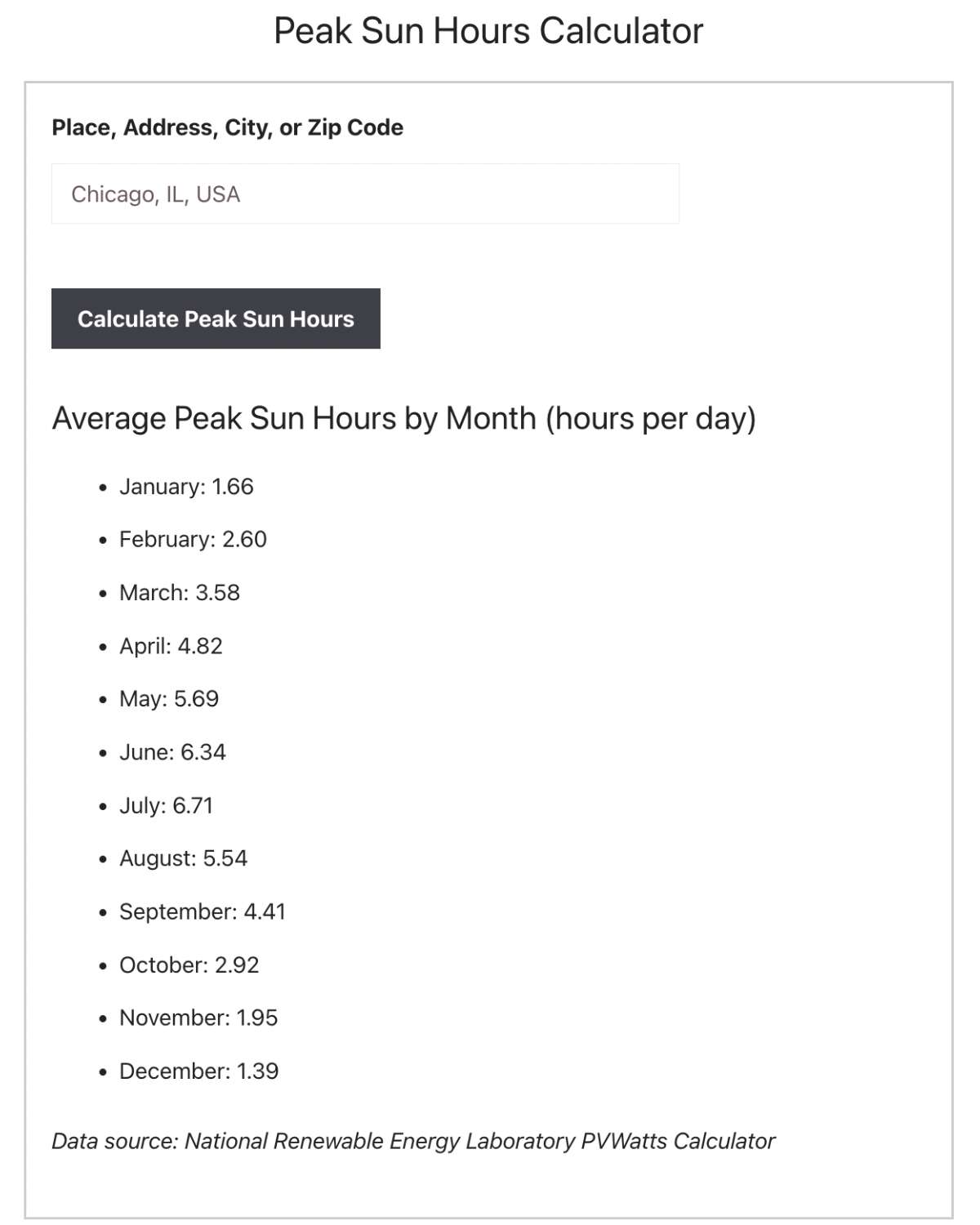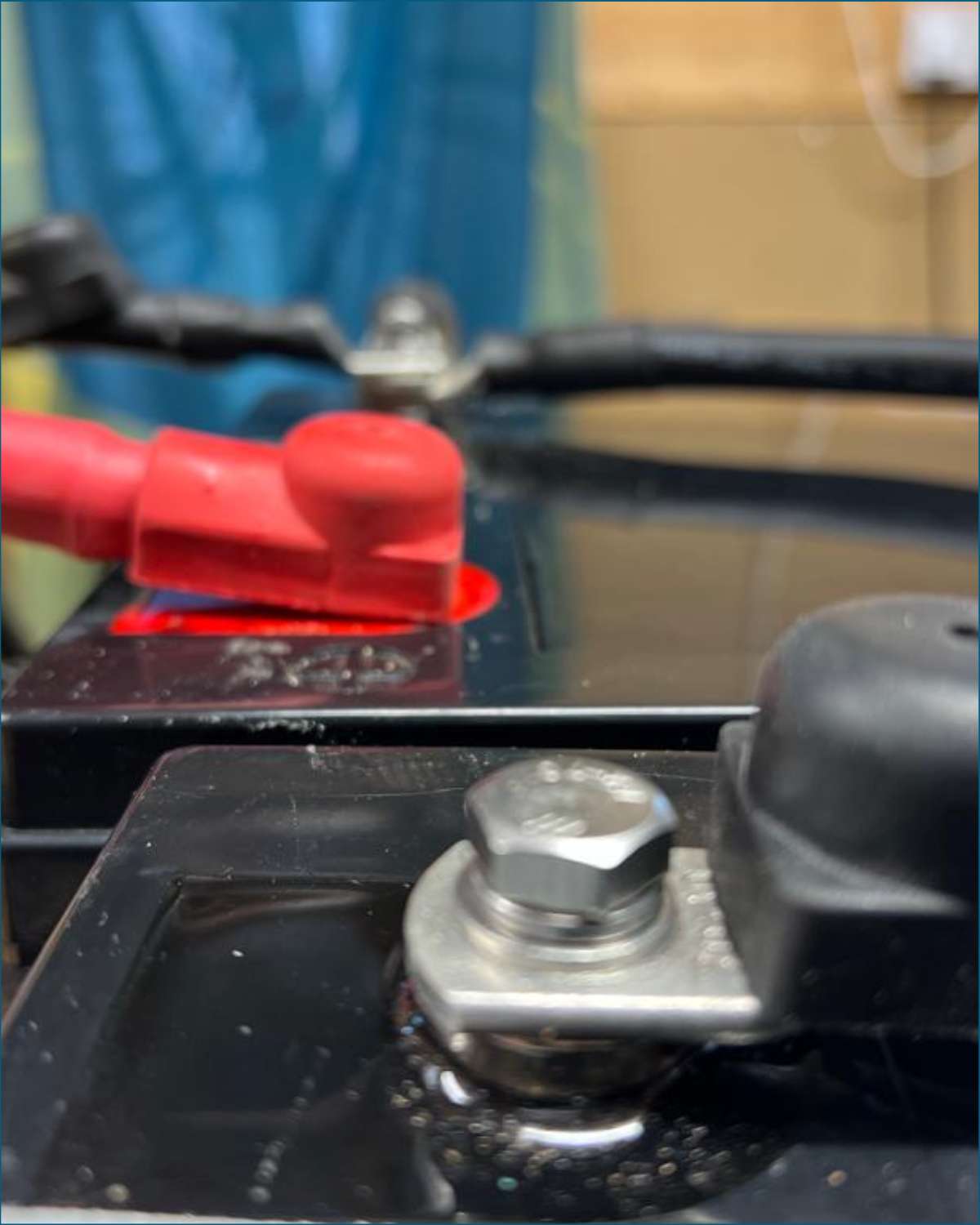Are you wondering what size generator you need for your RV? Look no further! Our article will provide you with the information you need to make an informed decision on the best size generator for your RV.
Imagine setting off on a long-awaited RV adventure and finding your generator isn’t powerful enough to run your appliances.
Or worse, it’s too noisy for your peaceful retreat.
Choosing the right generator for your RV can make all the difference in ensuring a comfortable and enjoyable RV experience.
But with so many options and factors to consider, you might ask yourself, “What size generator do I need for my RV?”
In this comprehensive guide, we’ll help you navigate the world of RV generators.
By the end of this post, you can confidently embark on your next adventure with the right size generator.
- Understand your RV’s power needs and identify essential appliances.
- Consider lifestyle factors when choosing generator size & estimate total power consumption.
- Look into:
- fuel options,
- portable vs. built-in generators, and
- inverter generators for efficiency & quiet operation to get the right size for your RV type.
Understanding Your RV’s Power Needs
Before diving into the world of RV generators, it’s crucial to understand your RV’s power needs.
You’ll have a solid foundation for choosing the right size generator for your unique situation by:
- identifying essential appliances,
- considering your lifestyle factors, and
- estimating your total power consumption.
Identifying Essential Appliances
When planning your RV adventures, take stock of the essential appliances that will keep you comfortable and entertained.
Common electrical RV appliances include:
- air conditioners,
- heaters,
- refrigerators,
- microwaves,
- TVs, and
- Other electronics.
Consult your RV owner’s manual or the appliances’ labels to determine their power requirements.
Remember that the air conditioner is often the most power-hungry appliance in an RV, consuming between 1,200 and 2,400 watts.
Consider other devices you might use during your travels, such as:
- coffee makers,
- induction cooktop,
- slow cookers, and
- portable gas grills.
By identifying the power needs of all your essential appliances, you’ll be better equipped to choose a generator that can handle your RV lifestyle.
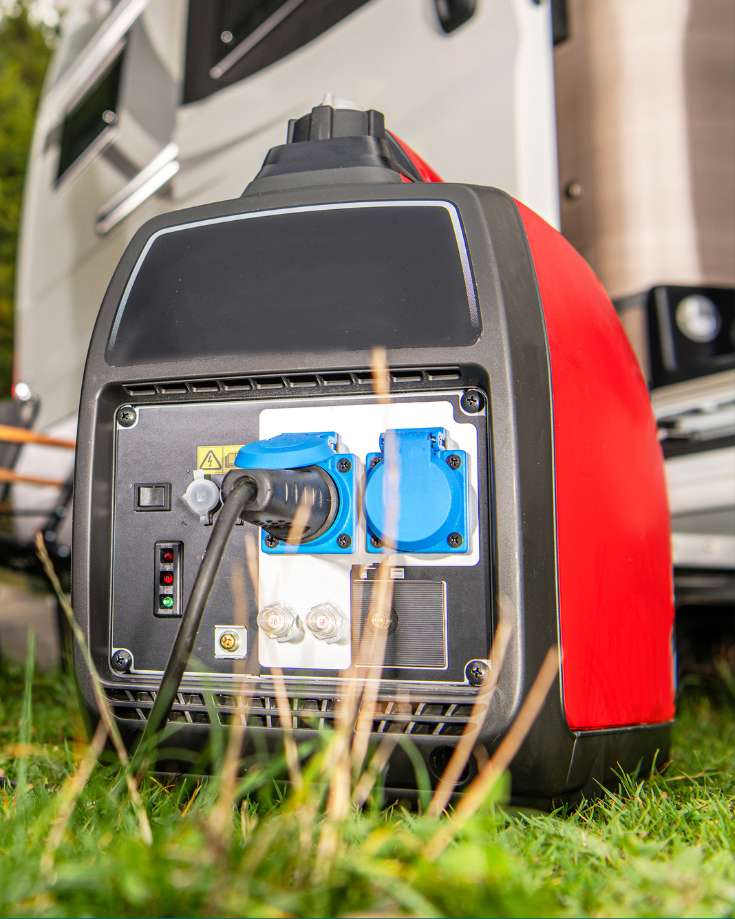
Considering Lifestyle Factors
Your RV lifestyle plays a significant role in determining the right generator size for your needs.
Are you an off-the-grid adventurer who prefers dry camping? Or a luxury-seeking traveler who enjoys the full amenities of glamping and RV parks?
Dry camping means having no access to 110-volt power, so you’ll rely more on your generator to power your appliances.
RV solar panels can help, but what if you can’t rely on the weather or your panels to generate enough electricity?
Investing in a high-end portable generator that can handle your power needs is wise.
On the other hand, if you’re a resort RV traveler who doesn’t require a lot of off-grid power for your appliances, you may opt for a lower-wattage generator.
Or even no generator at all.
No matter which type of RV lifestyle you have, choosing a generator that can adequately support your appliances and devices when you’re not connected to shore power is essential.
Estimating Total Power Consumption
Now that you’ve identified your essential appliances and considered your lifestyle factors, it’s time to estimate your total power consumption.
Start by adding the wattage of all the appliances you plan to use.
Remember that some appliances, such as air conditioners, have a higher starting wattage than their running wattage. So be sure to account for this when estimating your power needs.
Once you’ve calculated your total power consumption, apply the 20% rule by adding 20% to the wattage you’ll need.
This ensures your generator won’t run at full load, extending its lifespan and giving you some wiggle room for unexpected power needs.
With this information, you’re well on your way to selecting the perfect generator for your RV.
Types of RV Generators
Now that you understand your RV’s power needs, let’s explore the available types of RV generators.
This section covers the various fuel options, the pros and cons of portable vs. built-in generators, and the benefits of inverter generators.
Fuel Options: Gasoline, Diesel, Propane
When choosing an RV generator, one of the first decisions you must make is which fuel type best suits your needs.
Gasoline and diesel are the most common fuel options for RV generators.
Gasoline generators are usually smaller and lighter, making them easier to move around. Still, diesel generators are more efficient and have a higher energy output per gallon, although they have a higher price tag.
Propane is another fuel option worth considering.
A propane generator has a longer shelf life and is easier to refill, making them a popular choice for occasional RV users.
Additionally, propane generators produce fewer emissions and are generally quieter than their gasoline or diesel counterparts.
Ultimately, the best fuel option for your RV generator will depend on your specific needs, the availability of fuel sources, and your personal preferences.
Portable vs. Built-In Generators
Another important factor to consider when choosing an RV generator is whether a portable or built-in generator best suits your needs.
Portable generators offer more mobility and can be easily transported between locations. They are also typically lighter and more compact, making them a popular choice for smaller RVs and travel trailers.
However, they may provide less power than their built-in counterparts.
On the other hand, built-in generators are more powerful and can run on fuel or propane.
They are designed to be permanently installed in your RV, providing seamless integration with your RV’s electrical system.
While they offer more power and convenience, they can also be more expensive to maintain and repair, so weigh the pros and cons of each type of generator before making your decision.
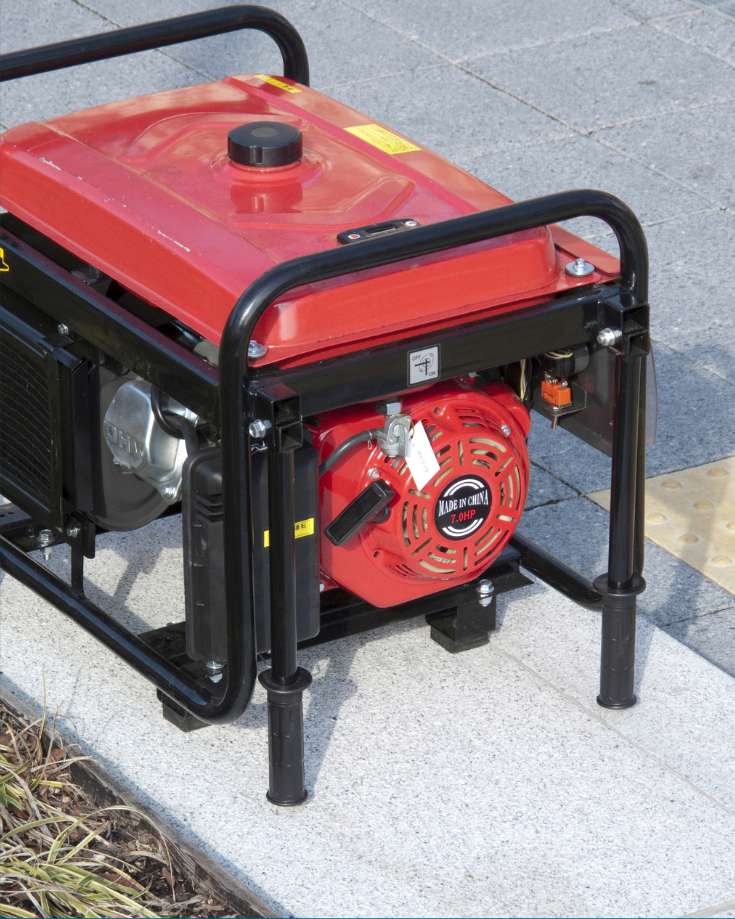
Inverter Generators: Efficiency & Quiet Operation
Inverter generators are popular among RV enthusiasts due to their fuel efficiency and quiet operation.
These portable generators use advanced technology to convert DC power into AC power, allowing them to run more efficiently and produce less noise than traditional generators.
Inverter generators also have microprocessors that regulate voltage and current, making them safe for use with delicate electronics such as computers and cell phones.
When selecting an inverter generator, consider its power output, fuel efficiency, and noise levels.
A higher power output may be necessary for larger RVs or those with multiple appliances, while lower noise levels are essential for a peaceful camping experience.
Sizing Your Generator Based On RV Type
As you explore the different types of RV generators, it’s essential to consider the size of your RV and how much power your appliances need.
This section discusses the recommended generator sizes for 30-amp RVs, 50-amp RVs, and smaller campers and travel trailers.
Generator Size for 30-Amp RVs
For 30-amp RVs, a maximum 3,600-watt generator is typically recommended.
Why?
Because a 30A RV running at 120v can only cope with 3600w (Amps x Volts = Watts). When you plug a 30A RV into a campground pedestal, that’s the maximum you can draw.
This size generator will provide enough power to run essential appliances, such as an RV air conditioner, heaters, and refrigerators, while leaving room for additional devices.
However, if you never use a pedestal, there’s no reason you can’t use a more powerful generator.
You will need to protect all the AC circuits with RCBs.
Also, remember that if or when you hook up to shore power, you won’t be able to use as much power as when running a larger generator.
Choosing a generator with the appropriate power output ensures that your RV’s electrical needs are met without overloading the system.
Generator Size for 50-Amp RVs
If you have a 50-amp RV, you’ll probably need a more powerful generator to accommodate the increased power requirements.
A generator with a power output of 4,000 to 8,000 watts is recommended for 50-amp RVs.
This will provide sufficient power to run multiple appliances simultaneously, including air conditioners, heaters, and other high-wattage devices.
The generator you choose should be able to handle the total wattage of all the appliances you plan to run simultaneously.
Make sure to check the wattage of the devices and add your contingency.
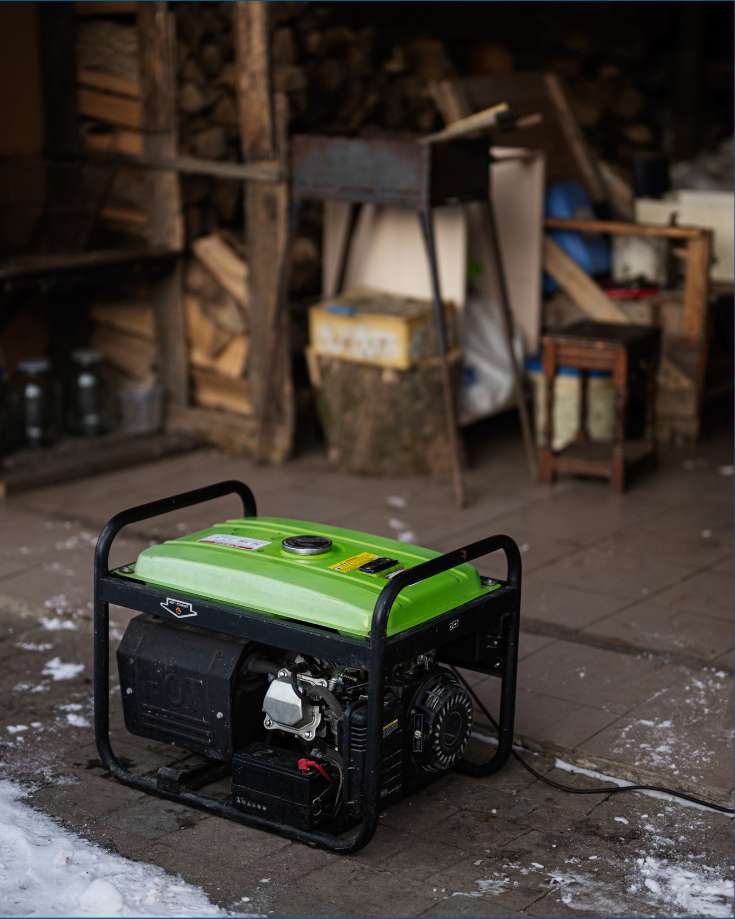
Generator Size For Smaller Campers & Travel Trailers
For smaller campers and travel trailers, a generator with a power output of 2,000 to 3,000 watts is generally sufficient.
This size generator will provide enough power to run essential appliances like lights, fans, and small electronic devices.
Choosing a generator with the appropriate power output allows you to enjoy a comfortable RV experience without overloading your electrical system.
Additional Factors To Consider When Choosing A Generator
Additional factors must be considered as you narrow down your generator options.
This section discusses the importance of noise levels and quiet hours. Weight and portability are also important considerations.
Fuel efficiency and environmental impact should also be considered when selecting the perfect generator for your RV.
Noise Levels & Quiet Hours
Generator noise levels can significantly impact your camping experience and the enjoyment of those around you.
Most campgrounds have designated quiet hours, typically between 10:00 pm and 6:00 am, during which generators should produce 60 decibels or less.
To ensure a peaceful camping experience, look for a generator with a noise level of 50-60 decibels.
This will allow you to run your generator without disturbing your neighbors or interrupting your own relaxation.
Weight & Portability
The weight and portability of your generator are essential factors to consider, especially if you plan to move it frequently or have limited storage space in your RV.
Lightweight generators are easier to manage and transport, making them popular for smaller RVs and travel trailers.
On the other hand, heavier generators offer more power and may be necessary for larger RVs or those with multiple appliances.
Consider the trade-offs between weight, portability, and power output when choosing the right generator for your RV.
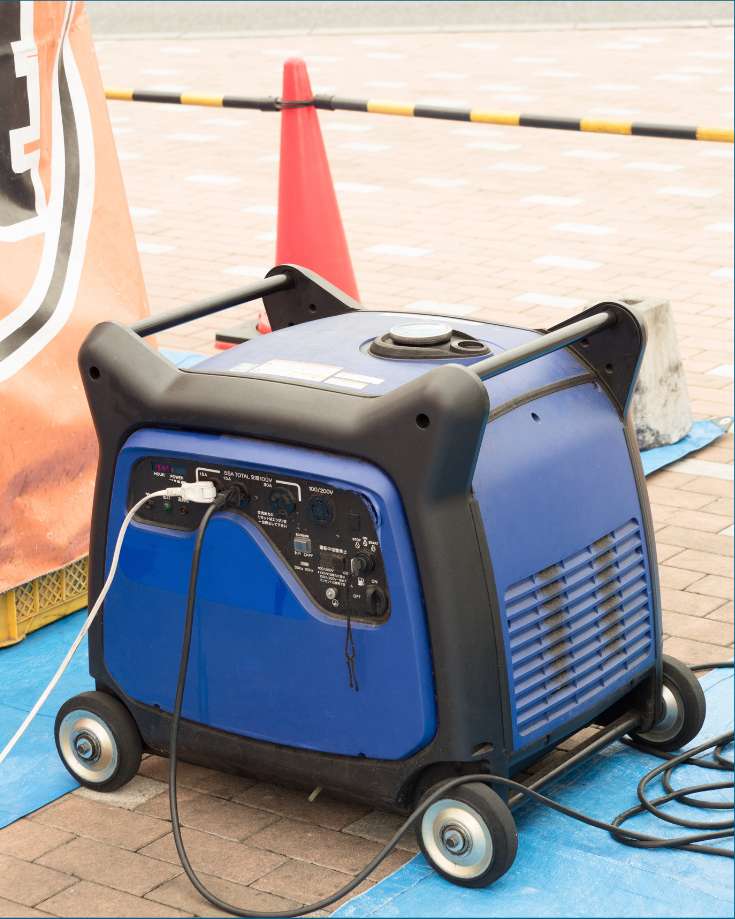
Fuel Efficiency and Environmental Impact
Fuel efficiency is critical when choosing an RV generator, as it directly impacts your wallet and the environment.
Propane generators are generally more fuel efficient and produce fewer emissions than gasoline or diesel generators, making them an eco-friendly option for occasional RV users.
Dual fuel generators, which can run on gasoline and propane, are suitable for frequent travelers who want to balance fuel efficiency with flexibility.
You can minimize fuel costs and environmental impact during your RV adventures by selecting a fuel-efficient generator.
How Humidity, Temperature, and Altitude Affect RV Generator Performance
Environmental conditions, such as high humidity, extreme temperatures, and altitude, can affect the performance of your RV generator.
Humidity
Humidity is a measure of how much water vapor is in the air.
It can significantly impact your generator’s performance because high humidity levels can cause condensation inside the engine, leading to corrosion and other issues.
In addition, hot, humid air is less dense than dry air, meaning that engines need to work harder to produce the same amount of power.
Temperature Considerations
Temperature also affects generator performance.
Generally speaking, temperatures above 40°C (104°F) will start to affect engine performance.
As temperatures rise, engines become less efficient and require more fuel to generate the same power.
Additionally, extreme cold temperatures can cause engine components to become brittle and prone to breakage or malfunctioning parts.
Altitude Effects
Altitude also plays a role in generator performance, as higher altitudes mean less oxygen in the air, affecting combustion efficiency.
This means that engines will need more fuel at higher altitudes to produce the same amount of power as they would at lower altitudes.
For example, at 5,000 feet above sea level, a generator may experience up to 16 percent power loss due to altitude alone!
Tips & Advice
When shopping for an RV generator, remember that different models may have different features, such as noise reduction technology or adjustable carburetors, allowing them better performance at higher altitudes or hotter climates.
Additionally, some models may come with “high altitude jets,” which help improve engine performance at higher elevations, so check if this feature is available before making your purchase decision.
Maintaining Your RV Generator
Proper RV generator maintenance is essential to ensure its longevity and reliability.
This section discusses the regular maintenance schedule for RV generators, common issues and troubleshooting, and essential safety precautions to remember when using your generator.
Regular maintenance should include checking the oil level, changing the oil and filter, and checking the spark plugs. It’s also important to check the fuel lines and fuel filters.
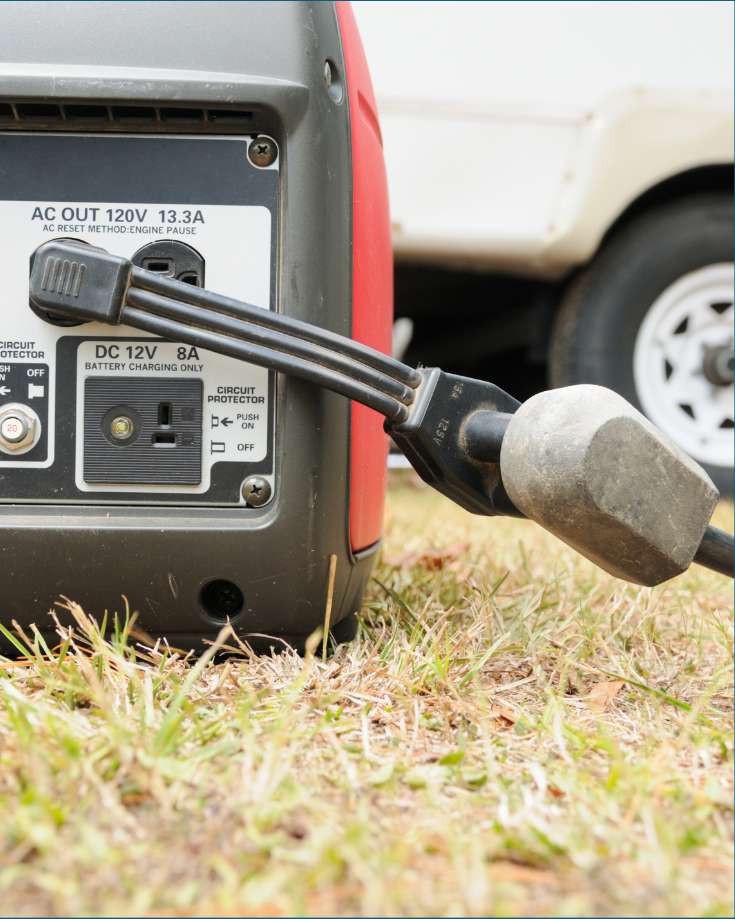
Regular Maintenance Schedule
Regular maintenance is vital to keeping your RV generator running smoothly and efficiently.
This includes:
- checking the oil levels,
- changing the oil and oil filter,
- replacing the fuel filters, spark plugs, and air filter, and
- draining any condensation or water from the system.
RV generators should be serviced every 500 hours or every two years, whichever comes first.
Adhering to a regular maintenance schedule can help prevent costly repairs and ensure your generator is ready to power your RV adventures.
Common Issues and Troubleshooting
Even with regular maintenance, you may encounter issues with your RV generator.
Some common problems include low oil levels, battery issues, no fuel or old fuel, and broken or worn-out components.
To troubleshoot these issues, check the fuel level, air filter, oil level, circuit breaker, and spark plug, and ensure the fuel reaches the carburetor.
Addressing these issues promptly can minimize downtime and keep your generator running smoothly.
What Size Generator Do I Need For My RV AC?
Size and power matter if you want to run your RV air conditioner. Most RV ACs require 2,900 Watts on startup, with 1,300 Watts necessary to keep it running. So make sure your generator is up to the task!
When calculating adequate generator capacity, you must also factor in altitude and temperature.
For example, if you plan to camp in higher altitudes or hotter climates, you may need a larger generator than usual.
Safety Precautions
Safety is paramount when using an RV generator.
Always operate the generator in a dry, well-ventilated, and preferably covered space. Keep it outside and away from doors and openings to prevent fire hazards.
Additionally, ensure the generator is placed at least 20 feet away from any inhabited structure to reduce the fire risk.
When operating your generator, follow the manufacturer’s instructions and warnings, and never use it in wet conditions or touch it with wet hands to prevent electric shocks.
By taking these safety precautions, you can protect yourself and your RV while enjoying the benefits of a reliable generator.
Alternative Power Sources Besides Generators
You may be looking for ways to power your RV that don’t involve a generator.
Solar is a great option; it lets you be one with nature and get off the grid. But there are other options too!
Portable power stations, shore power, and your vehicle’s alternator can all power your RV when camping.
Solar is often the go-to choice for many RVers because of its convenience and ease of use.
But portable power stations are a great option if you’re looking for something different or want to supplement your solar setup.
They come in different sizes and capacities, so you can find one that suits your needs perfectly.
Finally, don’t forget about your vehicle’s alternator!
When you’re driving down the road, it can provide power to charge up batteries or run appliances in your RV.
This is a great way to supplement solar or other alternative energy sources while on the move.
In Conclusion
Choosing the right generator for your RV is a crucial decision that can significantly impact your camping experience.
By understanding your RV’s power needs, considering the different types of generators, and considering additional factors such as noise levels, weight, and fuel efficiency, you can make an informed decision that will keep you powered on your RV adventures.
So go ahead, and explore the open road confidently, knowing you have the perfect generator size.
Graham Bogie

Graham is a seasoned marine electrical engineer with two decades of experience designing customized electrical systems for plant machinery and converting campers and overland vehicles. His expertise has led him to author the reputable Campervan Electrics Handbook and become the chief designer of the RV Wiring Design Tool. As a knowledgeable figure in the field, his YouTube channel, blog, Facebook group, and newsletter, offering electrical advice and product reviews, reach more than a million users each year.

